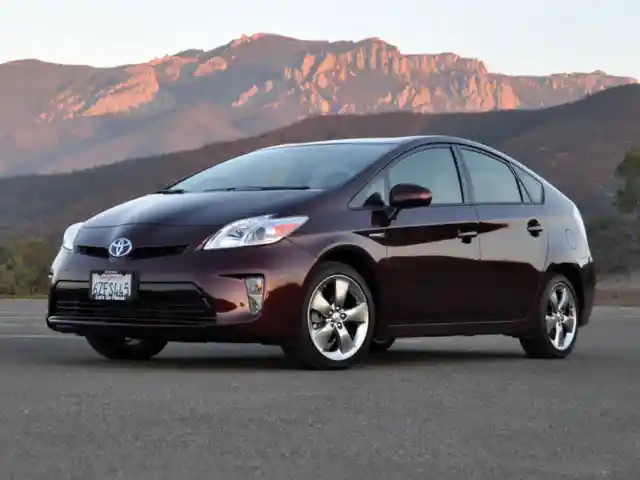Track Every Expense
Financial advisors say the best way to control your spending is to know precisely where all your cash is going each month.


There are several options: Make a budget; keep a spreadsheet of all spending; or buy a computer program designed to help manage your finances.
Vacation in the Off-season
Reston (Va.)-based financial planner Frank Boucher says he is taking his beach vacation in early September, when he found a luxury condo for half its cost during July and August.


Vacationers can also save by staying with friends or visiting low-cost locations like developing countries.
Cut Out Investment Charges and Fees
Jeff Seymour of Triangle Wealth Management in Cary, N.C., points out that many investors end up paying 2% to 3% off the top each year for investing costs. Lower-cost mutual funds and index funds can slash that bill, savings that compound over several decades of investing.


Also, save more by taking full advantage of your employer's matching contribution to your 401(k) account.
Cut Back on Eating Out
Food is a daily expense that can add up quickly over time, so office workers can save a lot just by bringing their lunches to work rather than buying every day.


Meals eaten at home almost always cost less than evenings out, even at more casual restaurants.
Downsize Your Car
Drivers stuck with a gas-guzzling SUV might consider selling it and finding more fuel-efficient wheels. (Of course, that could mean a financial hit given falling prices for the behemoths.) You can save on fuel and also on auto loan payments.


High car payments are a frequent budget-buster, financial advisors say.
Cut Utility Bills, Especially Electricity


Experts are full of advice on lowering electricity and heating bills: Buy efficient light bulbs; lower the thermostat; turn off the air conditioning whenever possible; turn off lights and unplug appliances when not needed.
Make Sure You Don't Have Too Much Insurance
Life insurance can be a bad deal if you don't have dependents. For auto and home insurance, deductibles are often too low, advisors say.


"You can save quite a bit by going from a $250 to $1,000 deductible," says Kirk Kinder of Picket Fence Financial in Bel Air, Md. "Also, shopping these for prices every couple years is important."
Find Cheaper Beverages to Drink
If you can break your addiction to fancy coffee, the free office coffee can be a money-saver over time. Unwilling to give up out-of-office coffee breaks, some thrifty consumers switch to a cheaper drink at their local Starbucks (SBUX) or other coffee shop.


For alcoholic drinks, quality wines, beers, and liquor can be found at lower prices with a little research.
Examine Your Phone Service
Do you need both a landline and a mobile phone? If you have a cell phone, do you need long-distance service on your home phone?


Canceling one line could mean one less bill every month. Many people have phone packages that are too expensive for their needs, so read your bill carefully.
Stop Paying for Premium Cable
Some penny-pinchers cancel cable service entirely to save $100 or more each month.


Others lower their bills by cutting out premium movie channels.
Drive Less; Consolidate Trips
Think before jumping in the car. By planning and running many errands on the same car trip, you cut your fuel usage.


Rather than driving, consider using public transportation, or walk, bike, or rollerblade somewhere nearby.
Use Warehouse Stores Wisely
Warehouse stores like Costco (COST) or Wal-Mart's (WMT) Sam's Club can be great places to get deals, but they can also encourage over-spending. "Just make sure you go with a list and only buy those things that you are actually going to consume," financial planner Frank Boucher says.


"It makes no sense to get a 'bargain' on a bulk item if you are going to throw half of it away."
Lay Down the Law with Your Free-Spending Friends
It can be hard to keep up with wealthier or less thrifty friends. Some financial planners advise cash-strapped clients to seek out social companions with similar budgets.


However, if you're honest about your spending limits, true friends should be willing to adjust their plans by, for example, choosing a less pricey restaurant.
Find Free Entertainment
Movie rentals, cable TV packages, book purchases, concert tickets—it can all add up. Use your local public library to read books and rent films for free.


Depending on where you live, it might also be possible to find free concerts, performances, and readings.
Consider Alternatives to a Gym Membership
The health benefits of a fitness club membership are only worthwhile if you go often. But there are other options: Exercise at home, outside, or at a local parks facility.


Or, sign up for individual exercise or yoga classes rather than a full membership.
Cut Your Own Lawn


Michelle Goldstein of Goldstein Financial Future in Dallas estimates her family saves $40 each time they mow their own lawn instead of calling a lawn service.
Be Smart with Credit Cards
Financial advisors admonish clients to pay off their bills each month to avoid interest and finance charges. For those stuck with debt, move cash to cards with low interest rates.


Some find they spend less on impulse purchases if they cut up their credit cards and use only cash instead.
Annualize Your Expenses
When reviewing your spending habits, roughly calculate how much they're costing over the course of a year. "Realizing how much things cost over the course of a year can really help put things in perspective," says Bob Nusbaum of Middle America Planning in Pittsburgh.


For example, if you spend $10 for snacks and lunch each weekday, that adds up to $2,500 in a year.
Force Yourself to Save
One way to save more is to trick yourself. Transfer money automatically from paychecks into savings or investment accounts.


With less available in your checking account, you'll be more careful about your spending. Gradually increase your automatic savings rate over time.
Institute a Waiting Period for Major Purchases
Wait at least 48 hours before deciding to buy anything over a certain price limit—$50 for example.


After the waiting period is over, "You may decide that the object desired really isn't worth the price," says Jennifer Hartman of Greenleaf Financial Group in Los Angeles.
Pay Bills Online—Save on Stamps, Avoid Late Fees
Set up your finances so bills are paid automatically or online at the click of a mouse.


"There's no reason to pay for stamps and envelopes and run the risk of a late-payment fee when bill-pay programs are usually free," says Walt Mozdzer of Syverson Strege & Co.
Make Sure You're Deducting All Business Expenses
Chris Long of Long & Associates in Chicago says clients often make the mistake of mixing personal and business expenses on one credit card.


That makes them less likely to get reimbursed for expenses by employers or to deduct expenses from taxes.
Buy Generic Drugs and Groceries
Store-brand products in grocery stores are often made by the same manufacturers as the brand-name items.


If you take prescription drugs, ask your pharmacist if a cheaper, generic version is available.
Buy Used
Cars, books, furniture, and even clothing can be bought used for a fraction of their original cost.


New cars in particular often aren't worth the extra cost; a lightly used vehicle can save you thousands of dollars with little or no extra maintenance expenses.